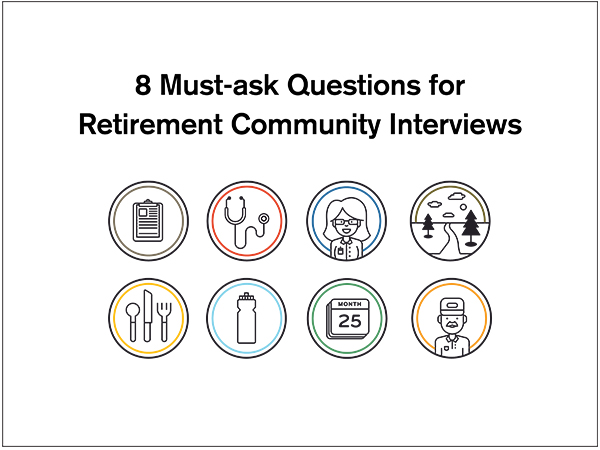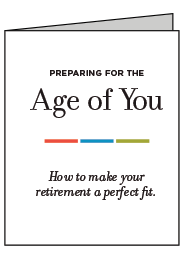The holidays bring families together—and with that togetherness often comes the perfect opportunity for important conversations. If you’ve been considering a move to Paradise Valley Estates, you’ve likely thought about how and when to share this decision with your adult children. While the holiday season may seem like an unusual time for such discussions, it’s actually ideal. Your family is gathered, relaxed, and you have their undivided attention.
But let’s be honest: bringing up your decision to move to a life plan community can feel daunting, especially when you anticipate pushback. The good news? You’re not asking for permission—you’re sharing a well-considered decision about your future. Here’s how to approach this conversation with confidence and clarity.
Understanding the Pushback Before It Happens
Before we dive into conversation strategies, it helps to understand why adult children sometimes resist their parents’ decision to move to a life plan community. Resistance rarely comes from a place of disrespect—it usually stems from one of these common concerns:
Misconceptions about what a life plan community actually is. Many people still picture nursing homes from decades past, not the vibrant, independent lifestyle that communities like Paradise Valley Estates offer. If they haven’t visited or researched, they simply don’t understand the product.
Difficulty accepting that you’re aging. Even when you’re completely independent and healthy, the idea of you planning for future care needs can trigger anxiety in adult children. It forces them to confront something they’d rather not think about.
Concerns about inheritance. Some adult children worry—sometimes openly, sometimes quietly—about how this decision affects their future inheritance. It’s an uncomfortable topic, but it’s often lurking beneath the surface.
Stigma about senior living. Despite how far these communities have evolved, outdated stereotypes persist. Words like “retirement home” or “senior living” can trigger negative associations that don’t reflect today’s reality.
Knowing these potential reactions in advance helps you prepare thoughtful responses rather than getting caught off-guard or defensive.
Frame It as the Strategic Decision It Is
You’ve done your research. You understand the financial advantages, the continuum of care, and the lifestyle benefits. This isn’t an emotional, fear-based decision—it’s a strategic, forward-thinking choice. Frame it that way from the start.
Try opening with confidence: “I want to share something I’ve been researching and thinking carefully about. I’ve decided to move to Paradise Valley Estates, and I’m excited about it. I’d like to tell you why this makes sense for me.”
Notice the language here. You’re not asking “What do you think about me maybe moving to a senior community?” You’re stating your decision and inviting them into your thought process. This positions you as the empowered decision-maker you are.
Address the Financial Reality Head-On
One of the most compelling aspects of life plan communities is the extraordinary savings in future care costs. This is where facts become your best friend.
Explain that you’ll have your own independent home at Paradise Valley Estates—this isn’t about giving up independence. Then walk them through the math: “If I need care down the road, the costs are already built into my plan here. Do you know what in-home care costs per hour? What about assisted living or memory care elsewhere? By making this move now while I’m healthy and independent, I’m actually protecting assets and ensuring I won’t deplete savings on unpredictable care costs later.”
If inheritance concerns are present (and let’s acknowledge they often are, even unspoken), this financial conversation can actually be reassuring. You’re not “spending their inheritance”—you’re making a smart financial decision that protects resources.
Paint the Picture of Your Actual Lifestyle
Combat the stigma by getting specific about what your life will actually look like. Adult children who picture institutional hallways and bingo games need to hear the reality.
“I’ll have my own home with my own space and privacy. I can come and go as I please. There’s a fitness center, a pool, restaurant-style dining when I want it, interesting neighbors, activities I’m excited about, and a full calendar of events. I’m not moving somewhere to sit around—I’m moving somewhere that makes my life easier and more enjoyable.”
Share what excites you personally. Maybe it’s the woodworking shop, the garden plots, the travel club, or simply not having to worry about home maintenance anymore. Help them see this as a lifestyle upgrade, not a step backward.
Emphasize the Continuum of Care—Your Safety Net
This is perhaps your strongest argument: “The beauty of Paradise Valley Estates is that if my health changes—whether that’s tomorrow or twenty years from now—I won’t have to move again. Everything I might need is right here on campus. You won’t have to scramble to find placement for me. You won’t have to move me multiple times as my needs change. We’re planning ahead so no one has to make crisis decisions later.”
This reframes the conversation from “Mom and Dad are getting old” to “Mom and Dad are being incredibly thoughtful and taking a burden off everyone’s shoulders.” Most adult children, once they understand this, feel relief rather than resistance.
Invite Them to Learn More
Don’t expect to resolve everything in one conversation. Instead, extend an invitation: “I know this might feel sudden, but I’ve done a lot of research. I’d love for you to learn more about Paradise Valley Estates, so you understand why I’m excited about this decision. They have events where families can visit in a no-pressure, fun setting. Would you come with me?”
Seeing the community firsthand is often the game-changer. What sounds institutional in abstract becomes appealing when they see the actual homes, meet residents who are thriving, and understand the full scope of services and lifestyle options.
Stand Firm in Your Independence
Finally, remember this: you’re sharing information, not seeking approval. Your adult children may need time to process, and that’s okay. But this is your life, your future, and your decision to make.
If you encounter resistance, you can acknowledge their feelings while holding your ground: “I understand this is a change, and change can feel uncomfortable. But I’ve thought this through carefully. This is what’s right for me, and I hope you’ll support my decision.”
The holidays bring families together for a reason—to connect, to share, and yes, sometimes to have important conversations. Your move to Paradise Valley Estates is worth discussing, and you deserve to make this choice from a place of strength and independence.
Ready to learn more about making Paradise Valley Estates your next chapter? Contact us for information or check out our event page for opportunities to visit the community in a no-pressure, fun setting. We’d love to show you—and your family—what life here is really like.



